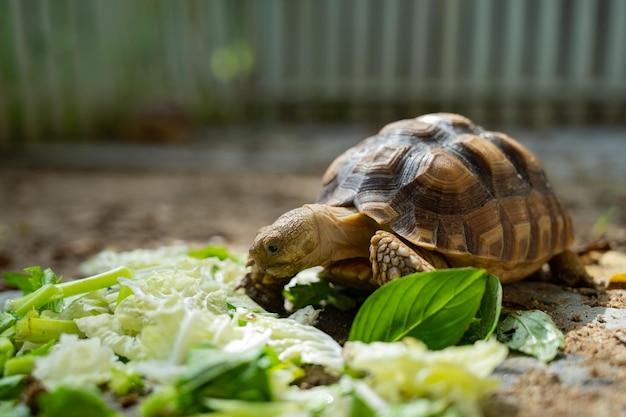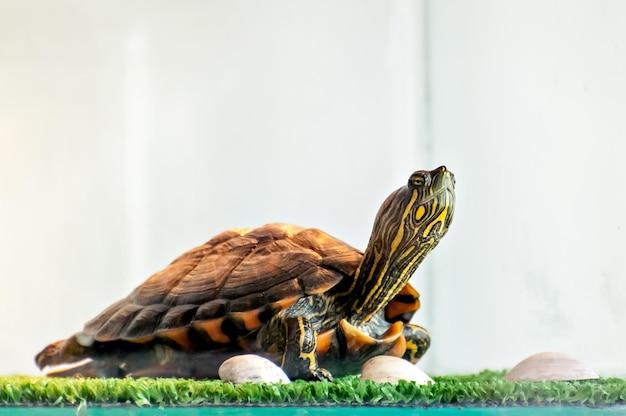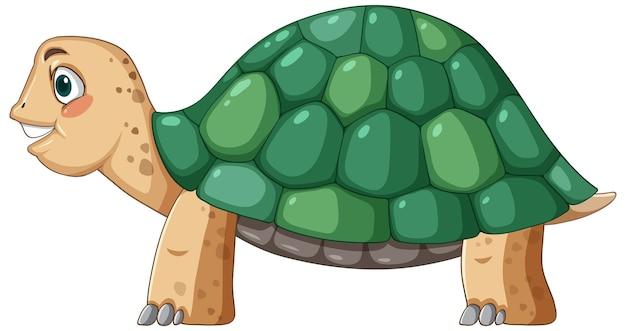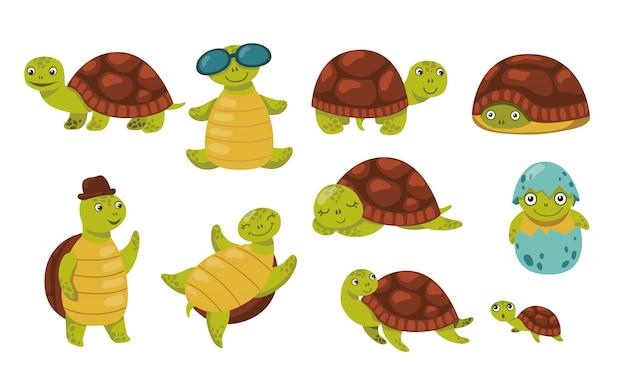Turtles are fascinating creatures that have captured our curiosity for centuries. But have you ever wondered, how long can these resilient reptiles go without food? In this blog post, we will dive deep into the feeding habits of turtles and answer questions like “Do turtles need to eat every day?” and “Can turtles go 5 days without eating?” We will also explore the importance of water in a turtle’s diet and unravel the consequences of prolonged fasting. So, let’s embark on this journey of discovery and learn more about the incredible abilities of our shelled friends.
How Long Can a Turtle Go Without Eating
If you’ve ever owned a pet turtle, you know they have a reputation for being slow and steady. But when it comes to their eating habits, just how slow can they go? In this section, we’ll dive into the fascinating world of turtle hunger strikes and discover how long these shelled creatures can last without a meal.
The Survival Masters: Turtles vs. Hunger
Turtles are true survival masters. When food becomes scarce, these reptiles can tap into their superpowers of slow metabolism and efficient energy storage. They have the astounding ability to slow down their bodily functions, allowing them to conserve energy and survive for extended periods without food.
Determining Factors: How Hunger Strikes Vary
The duration a turtle can go without eating varies depending on several key factors. One crucial consideration is the turtle species. Different species have adapted to different environments and, as a result, have varying metabolic rates and nutritional needs.
Patience Pays Off: The Average Duration
Generally speaking, most turtles can survive without eating for several weeks to a few months. If a turtle’s food supply is temporarily limited or their environment becomes inhospitable, they can enter a state of dormancy known as brumation. During brumation, turtles significantly reduce their metabolic rate and can go without eating for an impressive amount of time.
To Feast or Not to Feast: Signs of Hunger Strike
While it’s normal for turtles to have occasional feasting breaks, a prolonged lack of interest in food might indicate a hunger strike. If your turtle refuses to eat for more than two weeks, it’s wise to consult a veterinarian. They can assess your turtle’s health and provide guidance on proper care.
Tummy Troubles: Watch Out for Unhealthy Appetites
It’s important to note that an extended hunger strike may be a sign of underlying health issues. Digestive problems, infections, stress, or inadequate habitat conditions can all contribute to a turtle’s decreased appetite. Monitoring your pet’s eating habits closely can unveil any potential health concerns.
An Appetizing Conclusion
While turtles have the incredible ability to survive without food for extended periods, it’s crucial to offer them a well-balanced diet. A nutritious and varied menu is essential for their long-term health and well-being. Remember to provide appropriate food that meets the dietary needs of your specific turtle species, and always be attentive to any changes in their eating habits.
So, if you ever find yourself marveling at your pet turtle’s ability to abstain from food for weeks on end, just remember that they’re the true masters of patience and endurance.
What Turtles Love to Munch On
Turtles are known for being slow and steady, but when it comes to their eating habits, they can be quite particular. If you own a turtle or are thinking about getting one as a pet, it’s important to know what these shelled creatures enjoy sinking their teeth into. To keep your turtle happy and healthy, let’s explore the mouthwatering menu options that will make them flip with joy!
Leafy Green Delicacies
Leafy greens are like the Superfood for turtles. These little champions adore munching on a variety of greens, such as kale, collard greens, dandelion greens, and romaine lettuce. Think of it as a fancy salad party for your turtle’s taste buds. Just make sure to wash the greens thoroughly and remove any wilted or spoiled leaves before serving them up. After all, turtles have high standards when it comes to their salads!
Delectable Aquatic Treats
When turtles want to get a taste of home, they dive into their aquatic paradise. Offer them some water lettuce, water hyacinth, or duckweed—these aquatic plants will make their jaw drop in delight. Not only do these leafy treats add variety to their diet, but they also provide the essential nutrients that turtles need to thrive. Just make sure to introduce these aquatic plants gradually and observe your turtle’s preference, as they all have their own finicky tastes.
Protein-Packed Yummies
Turtles enjoy a good balance of protein in their diet. They are like mini athletes, and protein helps to keep their engines running. Try feeding them earthworms, fish, insects, or shrimp. These protein-packed morsels will have your turtle’s tiny head poking out of their shell in excitement. It’s like serving them a gourmet surf and turf dinner!
Colorful Veggie Delights
Who said turtles can’t have fun with their food? Add some color to their meals with a medley of vibrant veggies. Present them with a rainbow of carrots, bell peppers, squash, and pumpkin. Not only will these colorful veggie delights make their meals more visually appealing, but they also provide essential vitamins and minerals to keep your turtle’s shell shiny.
Fruity Indulgences
Treat your turtle to some fruity indulgences once in a while. While they may not have a sweet tooth like humans do, turtles enjoy a taste of berries, such as strawberries or blueberries. Just remember to remove any stems or pits, as turtles are not big fans of those! These tiny bursts of flavor will surely bring a smile to your turtle’s face.
A Word of Caution
As much as turtles love to eat, it’s crucial to remember that not all foods are safe for them. Avoid offering your turtle human foods, dairy products, or processed snacks. Remember, just because they enjoy slow and steady doesn’t mean they can handle a fast-food diet!
Now that you’ve got the inside scoop on what turtles love to munch on, shake up their menu and watch them savor every bite. Remember to provide a well-balanced diet, incorporating different food groups to keep their taste buds happy and their shells thriving. So go ahead, let your turtle eat like a king or queen and spoil them with these delicious delights!
Do Turtles Need to Eat Every Day
Turtles are fascinating creatures with unique feeding habits. While they may not eat every day, they still need a regular source of food to survive. Unlike humans, turtles can tolerate longer periods without eating. However, depriving them of food for too long can have negative consequences for their health.
The art of turtle fasting
Turtles have a remarkable ability to survive without food for extended periods. In fact, some turtles have been known to go without eating for several weeks or even months. This natural adaptation allows them to conserve energy and endure unfavorable conditions in the wild, such as scarcity of food or hibernation during the colder months.
Listen, they’ve got their hunger rules
Although turtles have their own hunger rules, it’s important to note that they still require regular nourishment. While they can withstand hunger longer than many other animals, it’s not advisable to let them go without eating for too long. Just like us humans, they need a balanced diet to stay healthy and maintain their bodily functions.
The golden rule of feeding
As a general rule of thumb, it is recommended to feed turtles every 2-3 days. This ensures they receive the necessary nutrition without overfeeding them. Providing a varied diet is also crucial to meet their specific dietary needs. Remember, turtles have taste buds too, so they appreciate some culinary diversity!
Variety is the spice of a turtle’s life
Turtles are omnivores, so a well-rounded diet includes both plant material and protein sources. Their meals can consist of leafy greens like kale or collard greens, vegetables like carrots or squash, and even fruits on occasion. Additionally, you can offer them high-quality commercial turtle pellets or live foods such as insects, worms, or small fish. A diverse menu ensures they receive all the essential nutrients they need to thrive.
Just don’t overdo it
While providing food regularly is vital, it’s essential to avoid overfeeding your turtle. Overfeeding can lead to health issues, including obesity, which may have detrimental effects on their overall well-being. So, as tempting as it may be to treat your turtle to extra snacks, remember to stick to a balanced and appropriate feeding schedule.
A little holiday won’t hurt
Occasionally, it’s perfectly fine to give your turtle a little fasting holiday, especially if it’s a healthy adult. Think of it as a mini-vacation for their digestive system. However, it’s crucial to monitor their behavior and never extend the fasting period excessively or repeat it too frequently. Always consult with a veterinarian to ensure your turtle’s health remains uncompromised.
With their unique feeding habits and ability to survive long periods without food, turtles continue to captivate both pet owners and wildlife enthusiasts. Remember, while they don’t need to eat every day, providing them with a regular, well-balanced diet is crucial to ensure their happiness and longevity. So let’s keep those turtle tummies happy and healthy!
Can Turtles Go 5 Days Without Eating
When it comes to the eating habits of turtles, these slow-moving creatures can sometimes surprise us. You might be curious to know if turtles can endure long periods without food. Well, let’s dive into the fascinating world of turtle nutrition and find out if they can go 5 days without eating!
Turtles and Their Remarkable Adaptations
Turtles have evolved over millions of years and developed some incredible adaptations to survive in various environments. One of these adaptations is their ability to endure extended periods without food. This adaptation allows turtles to manage their energy levels efficiently and make the most of scarce food sources.
The Sluggish Metabolism of Turtles
Turtles have a considerably slow metabolism compared to many other animals, which contributes to their ability to go without eating for several days. This sluggish metabolism helps them conserve energy and prolong the time between meals. So, while turtles may not be speedsters when it comes to metabolism, they certainly know how to stretch their meals!
A Shell of Storage
Another unique feature that helps turtles survive extended periods without food is their shell. Yes, that impressive protective armor provides more than just physical defense! Turtles can store essential nutrients and water reserves within their shells, which helps sustain them when food is scarce. This storage system acts as a safety net during times when their foraging efforts may not be fruitful.
The Not-So-Hungry Reptiles
But what about those days when Mr. Turtle simply doesn’t feel like eating? Well, turtles are known to be a bit finicky when it comes to their appetite. Sometimes they’ll go through “food strikes” where they just don’t fancy a meal. These rebellious phases can last for a few days, and as long as the turtle is healthy and has received proper nutrition, there’s no need to panic.
The Strategy of Survival
In the wild, turtles face unpredictable and sometimes harsh conditions. Their ability to adapt to diverse environments and survive with limited resources has helped them thrive for centuries. Going without food for a few days is just one strategy in their survival playbook.
Feeding Schedule: The Moderation Rule
While turtles can manage without food for several days, it’s important to strike a balance. Just like us humans, they need regular sustenance to stay healthy. Ideally, turtles should have a balanced diet and be fed in moderation, rather than relying on irregular long breaks between meals. A consistent feeding schedule supports their overall well-being and helps prevent any health complications.
So, can turtles go 5 days without eating? Absolutely! Thanks to their unique adaptations, turtles can endure extended periods without food and survive just fine. However, it’s essential to remember that they perform best with a routine feeding schedule. While they might occasionally engage in fasting or food strikes, it’s always best to keep an eye on their health and provide a nutritious diet. So, let’s leave our shelled friends to their occasionally quirky appetite habits and ensure they remain happy and well-fed.
How long can a turtle go without water
Turtles are fascinating creatures known for their ability to survive in various environments. While most people associate turtles with water, these resilient creatures can adapt to both aquatic and terrestrial habitats. But have you ever wondered how long a turtle can go without water? Let’s dive into this curious question and unravel the truth behind a turtle’s water needs.
The Importance of Water for Turtles
Water plays a vital role in the life of a turtle. It serves multiple purposes, keeping them hydrated, aiding digestion, and providing a suitable environment for various physiological functions. Just as we humans depend on water to survive, turtles too require this precious resource to sustain themselves.
How Long Can a Turtle Go Without Water
Turtles have a unique ability to conserve water within their bodies, enabling them to withstand extended periods without access to water. However, it is essential to note that the duration a turtle can survive without water varies depending on its species, age, health condition, and environmental factors.
Adaptation is Key
Different turtle species have distinct adaptations that help them endure water scarcity. Some species, like the desert-dwelling desert tortoise, have evolved to obtain the majority of their required water from the succulent plants they consume. These turtles have the capacity to store water in their bladder, allowing them to survive without access to additional water for months.
A Remarkable Survival Technique
In cases where turtles are unable to find water, they can enter a state of aestivation, which is similar to hibernation. During aestivation, turtles reduce their metabolic rate and become dormant to conserve energy and water. This remarkable survival technique enables them to withstand dry periods even longer.
The Limitations of Water Deprivation
While turtles have impressive adaptations to survive without water, it’s important to remember that depriving them of water for extended periods can have detrimental effects on their health. Dehydration can lead to various health issues, including kidney problems, organ failure, and even death. Therefore, it is crucial to provide turtles with access to water regularly, ensuring their well-being.
Monitoring and Providing Water for Your Pet Turtle
If you have a pet turtle, it is your responsibility to monitor its water needs closely. As a general rule, you should provide a shallow water dish for your turtle to bask, swim, and drink from. Regularly change the water to maintain hygiene and prevent contamination. Always ensure the water temperature is suitable for your turtle’s species and keep an eye on any signs of dehydration or stress.
While turtles possess impressive adaptations that allow them to endure periods without water, it is essential to remember that water is a fundamental necessity for their survival. Providing turtles with access to clean, freshwater is crucial for maintaining their health and well-being. By understanding their unique water needs, we can ensure these fantastic creatures thrive in our care.
What Happens if a Turtle Doesn’t Eat for a Week
We all know that feeling of hunger when it’s been a few hours since our last meal – it’s like our stomachs are growling a symphony of hunger. But have you ever wondered what happens if a turtle goes without eating for a week? Do they get hangry or, dare we say, turtley cranky? Let’s dive into the fascinating world of turtle metabolism and find out!
The Tortuous Path of Hunger
Turtles are known for their patience – they can spend hours idly floating in the water, seemingly unperturbed by the passage of time. So when it comes to food, they have the willpower to make it through a week without a meal. However, their bodies sure go through some interesting processes during this time.
Chubby Reserves to the Rescue
Turtles are champions at storing energy in the form of fat reserves. These chubby reserves act as a backup plan during times of scarcity, like when the local seafood buffet runs out of turtle favorites. So, even if a turtle doesn’t nibble on anything tasty for a week, they can tap into their fat stores to keep themselves going. It’s like having a hidden stash of chocolate bars for emergencies!
Slumbering Metabolism
Turtles are masters of the slow life. They have incredibly slow metabolic rates, which means they don’t burn through energy as quickly as other animals. This sluggish metabolism allows them to conserve energy and endure longer periods without food. It’s like they’ve discovered the secret to eternal relaxation – simply take a slow sip of energy and coast through life!
No Dinner Date, No Problem
During a week of fasting, a turtle’s digestive system takes a bit of a vacation. With no new food arriving at the dinner table, their digestive tract can have a well-deserved break from the usual processing duties. It’s like calling in sick to work but without the need for a doctor’s note – thank you, Mother Nature!
Hello, Hangry Shell!
While turtles can survive a week without food, it doesn’t mean they won’t feel the pangs of hunger. Just like us humans, they might experience some crankiness and a bad case of the hangries. So, if you see a grumpy turtle refusing to engage in its usual banter, maybe it’s just having a shell of a time dealing with the hunger blues.
So, what happens if a turtle doesn’t eat for a week? Well, they tap into their fat reserves, slow down their metabolism, give their digestive system a break, and maybe even get a little hangry. Despite these challenges, turtles possess incredible adaptations that allow them to endure periods without food. After a week, though, it’s always best to treat them to a delicious meal. Remember, even the slowest creatures need a snack from time to time!



